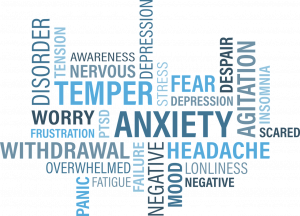For this intersection, we would like to focus on the mental health of survivors (people with lived experiences) of modern slavery. The conditions in which a person was held, their experiences during exploitation, and other psychological factors all impact the mental health of survivors. Psychological trauma is more catastrophic for children than adults. When people are subjected to forms of modern slavery, they are stripped of their freedom and basic human rights, treated as property that has been ‘bought’ and ‘sold’, thus creating present and future mental health challenges that can cause significant risks.

It is important to remember that every person in modern slavery will have different experiences; every survivor is unique. The form of exploitation, duration, age, gender, sexuality, person’s prior history, first contact with support etc. – these are all factors that affect the mental health of survivors and create distinctions between each person’s rehabilitation process. Trauma-related challenges are extremely prevalent.
Survivors of modern slavery will often face anxiety, post-traumatic stress disorder and depression. As survivors would have been exposed to repeated trauma, post-traumatic stress disorder is a common mental health challenge because the human brain struggles to contextualise these events. Some survivors may have been exploited for many years, have had no control over their life, are dependent on someone (their trafficker) for basic needs (shelter, food, clothing etc.), do not have a sense of autonomy or self, have lost all trust and may struggle to make simple decisions. Furthermore, some survivors may also become involved in other forms of exploitation or find themselves re-trafficked, not only because of failures of the government to provide adequate support but also because a survivor may have a psychological attachment to their traffickers. Traumatic events and being in abusive relationships for sustained periods without any autonomy can set templates for future relationships.
Moreover, traffickers may also target psychologically vulnerable people to exploit. Traffickers can spot and coerce people who are emotionally vulnerable or have experienced trauma in the past. Traffickers will prey on the psychological need of a person who wants to receive interest or affection from another because when a person is emotionally vulnerable, they are more likely to miss the warning signs of an abusive relationship / trafficker (particularly online).
Currently, survivors of modern slavery are not treated very well. They are detained, threatened with deportation, criminalised and provided poor psychological support. Moving forward, more must be done. A human rights and non-punishment principle approach must be taken to ensure that survivors are treated with dignity, respect and compassion.

It must be acknowledged that every survivor is unique and has different needs. Therefore, each survivor’s psychological welfare must be assessed by mental health professionals who specialise in supporting people with lived experiences of modern slavery, severe forms of exploitation, abusive relationships and trauma. Mental health support must be uniquely tailored to each survivor. The cultural, socio-economic and systemic background of each survivor must also be taken into consideration.
All support provided to survivors must be thoroughly evidenced and survivor-informed. Programmes must be created with or by survivors, consulted at all stages of support mechanisms because survivors offer crucial insights.
In addition to mental health support and psychological rehabilitation, grassroots work must be carried out. Working with communities to break down cultural barriers, shame and stigma, assisted by societal and political interventions/protections are required to reduce the risk of further exploitation. This can also provide survivors of exploitation with a support network and can improve the efficacy of psychological assistance.

